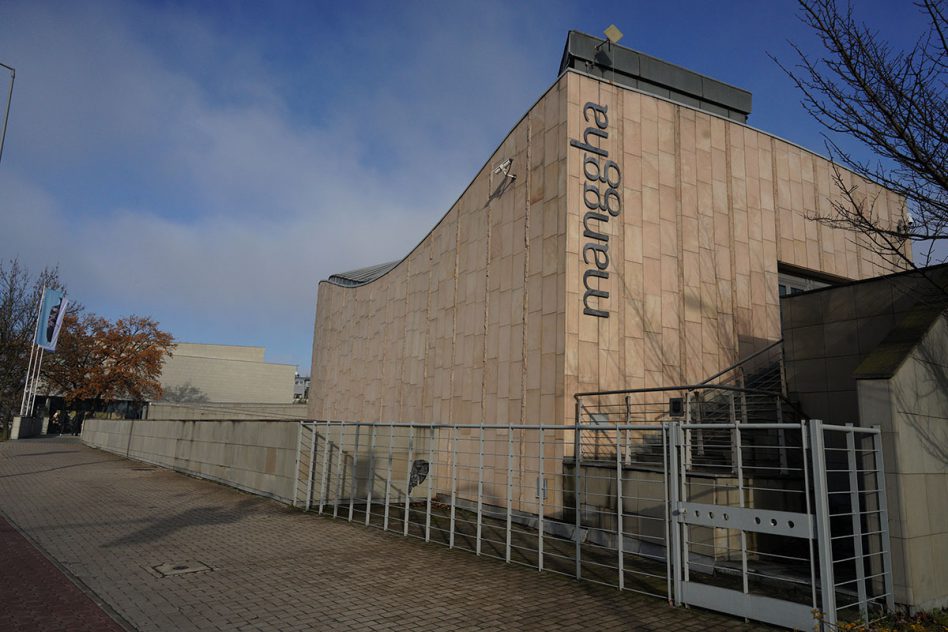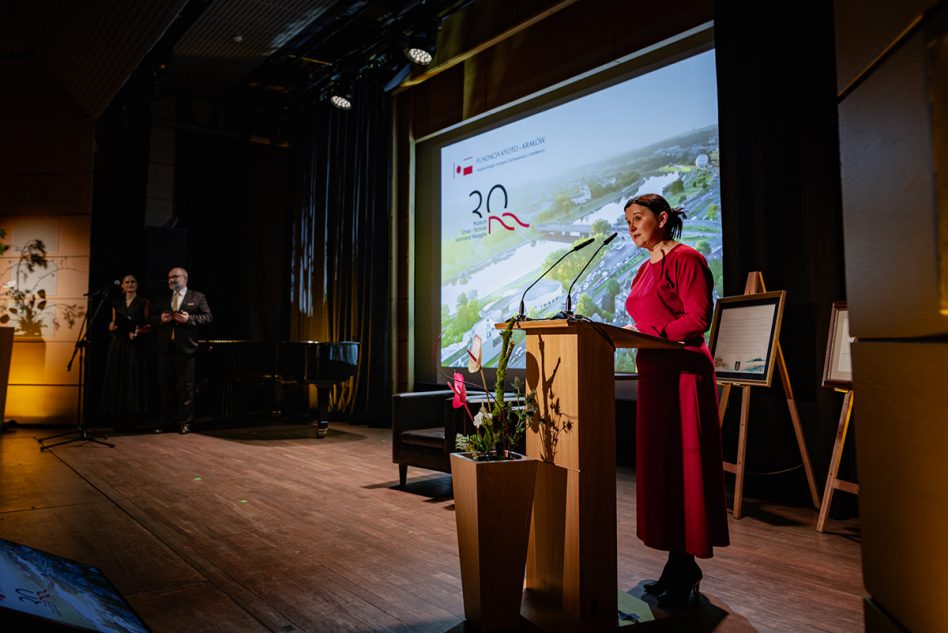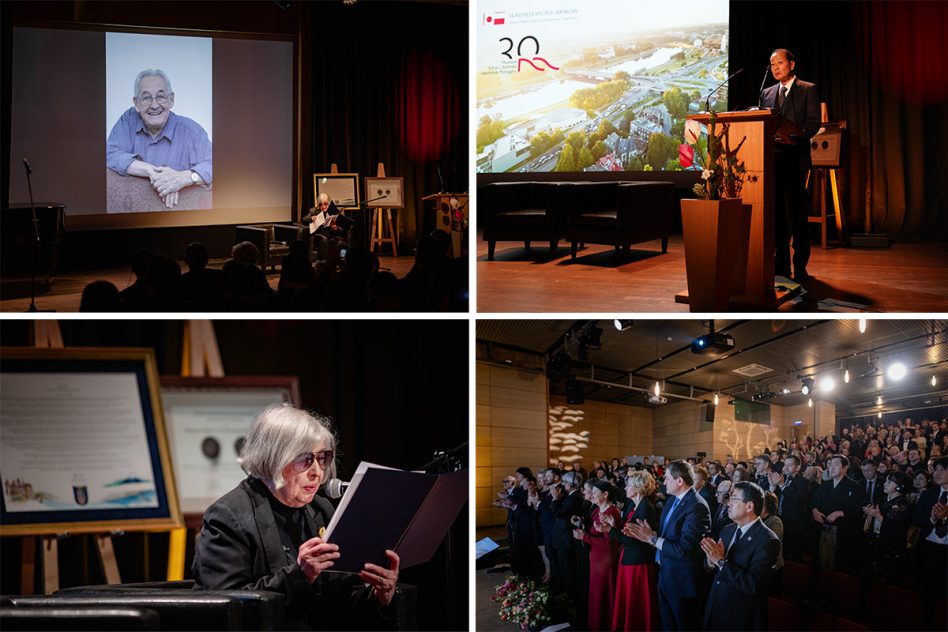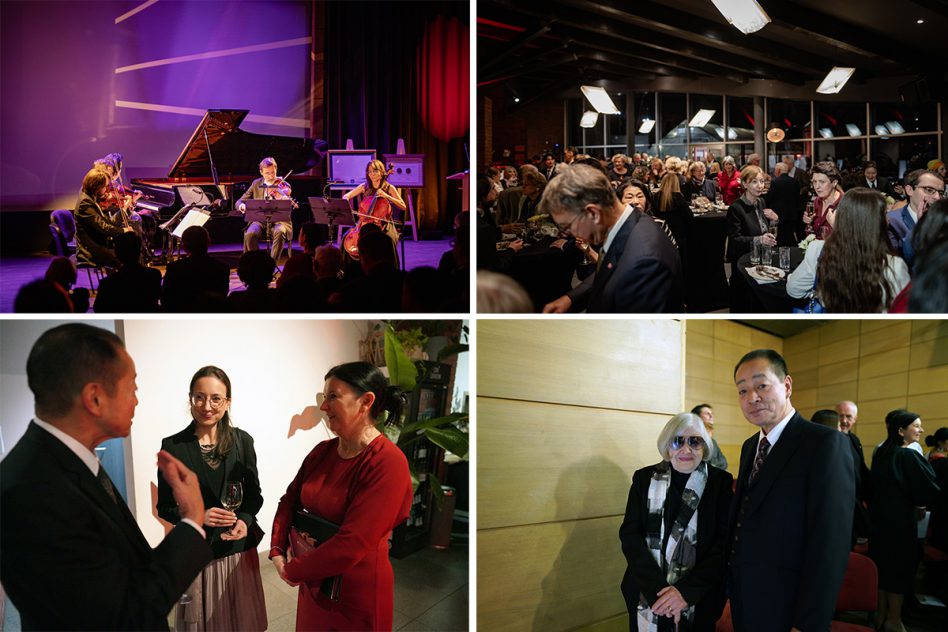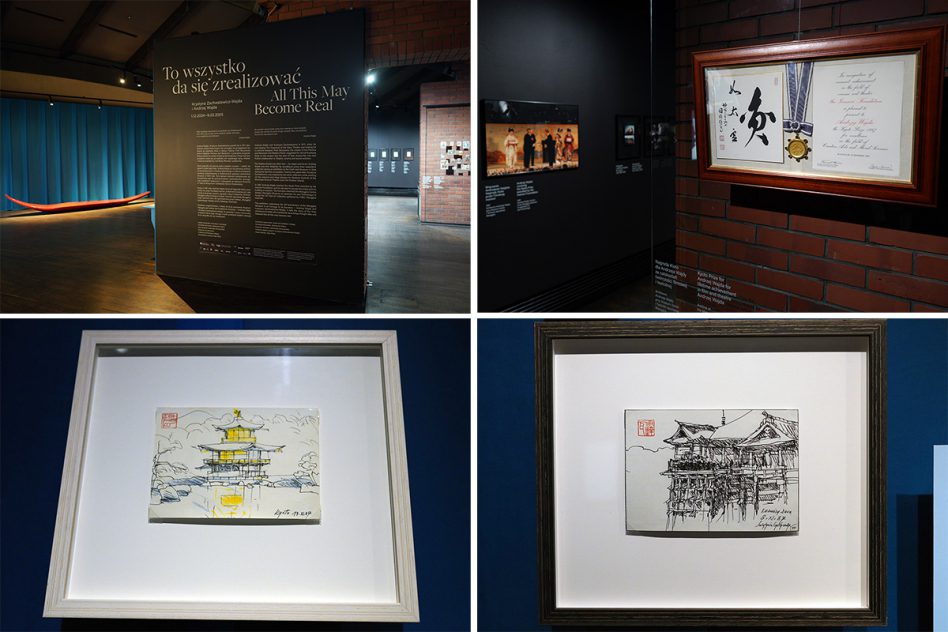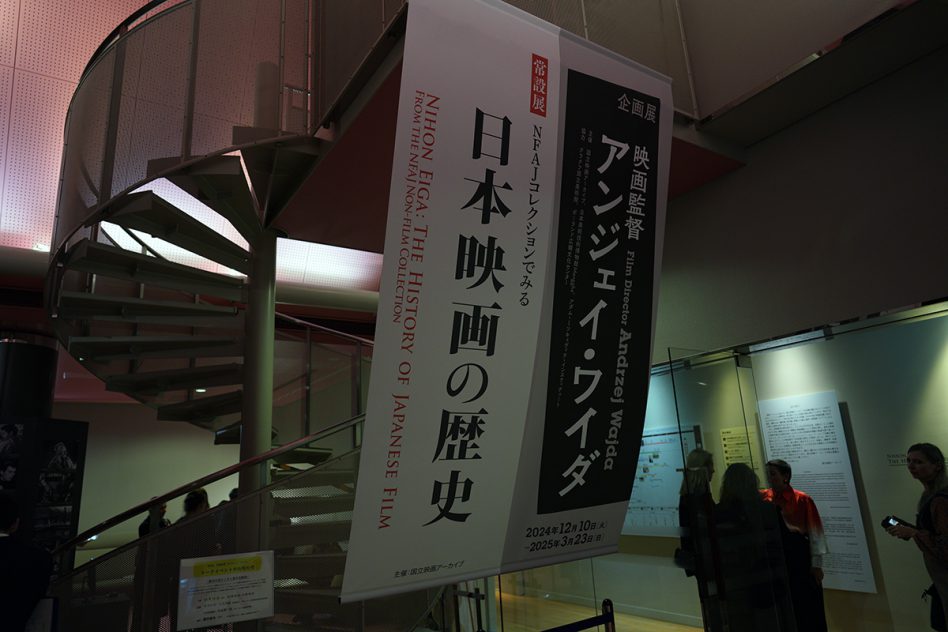On November 30, a grand ceremony was held at the Manggha Museum of Japanese Art and Technology in Kraków, Poland to commemorate its 30th anniversary. Founded in 1994 through the passion of Andrzej Wajda, the renowned Polish film director and laureate of the 1987 Kyoto Prize in Arts and Philosophy(*), and his wife. The museum was established with the support of both Poland and Japan. Using the prize money from the Kyoto Prize, Wajda envisioned creating a facility dedicated to introducing Japanese art. (*This category was the called Creative Arts and Moral Sciences.)
The Inamori Foundation was invited to the ceremony, with Executive Managing Director Shoichi Himono attending the event.
The ceremony commenced with opening remarks by Director Katarzyna Nowak of Manggha Museum, followed by a heartfelt video message from Her Imperial Highness Princess Takamado, who has deep ties to the Manggha. Congratulatory speeches from the Ambassador of Japan to Poland, and representatives from both Poland and Japan. Himono also expressed his warm congratulations on behalf of the Inamori Foundation. To conclude, Mrs. Wajda reflected on the 30-year journey of the Manggha through a slide presentation and a heartfelt speech, which deeply moved the audience and was met with a round of warm applause. The event became a significant moment to reaffirm the enduring cultural bond between Poland and Japan.
After the ceremony, a mini concert featuring local musicians with piano and string quartet performances brought a festive and elegant atmosphere to the venue. This was followed by a buffet-style reception, where representatives from both countries mingled in a warm and friendly environment. We received some messages among the attendees.
“I have been learning tea ceremony at the Manggha and had the opportunity to present tea as a member of the Urasenke school at the Kyoto Prize presentation ceremony some years ago. I am enjoying the moments of connecting with others through tea, and I am grateful to have had this precious experience, thanks to Mr. Wajda, the Manggha, and the Kyoto Prize.” (Polish male, 20s)
“I was born in 1987, the year Mr. Wajda won the Kyoto Prize, and I first visited the Manggha on a school field trip. As a child, I wondered why the Polish director, Mr. Wajda, was so famous in Japan. Later, I watched Mr. Wajda’s films, began exploring Japanese art, and now I am working at Manggha.” (Polish female, 30s)
On the same day, a special exhibition tracing the journey of Director Wajda and his wife opened, showcasing photographs, Kyoto Prize medal, and diploma of the 1987 Kyoto Prize Presentation Ceremony. Additionally, sketches of Kinkaku-ji (Golden Pavilion) and Kiyomizu-dera that Wajda made during his visit to Kyoto were also displayed.
The day following the ceremony, the museum resumed to its regular operations, with calligraphy and origami workshops held in the lobby. Polish children eagerly participated, and their expressions were impressive indeed. As a prelude to the ceremony, a Noh performance was held the evening before, drawing a full house and creative a lively, anticipatory atmosphere. The Manggha was once again recognized as an essential hub for cultural exchange between Poland and Japan, deeply rooted in the lives of Kraków citizens. Throughout the city, posters commemorating the 30th anniversary of Manggha were displayed, attracting both locals and tourists.
Currently, the “Andrzej Wajda: Film Director” exhibition is being held at the National Film Archive in Tokyo until March 23, 2025. Through the director’s representative works and related materials, visitors can gain a deep understanding of his cinematic journey and the cultural connections between Poland and Japan. For more details, visit: https://www.nfaj.go.jp/exhibition/andrzejwajda2024/.
(Reported by Public Relations Department, Inamori Foundation|Photo courtesy of Kamil A. Krajewski)
Related informations
- Andrzej Wajda’s page
- Manggha Museum of Japanese Art and Technology page
- “Film Director Andrzej Wajda” Exhibition page

